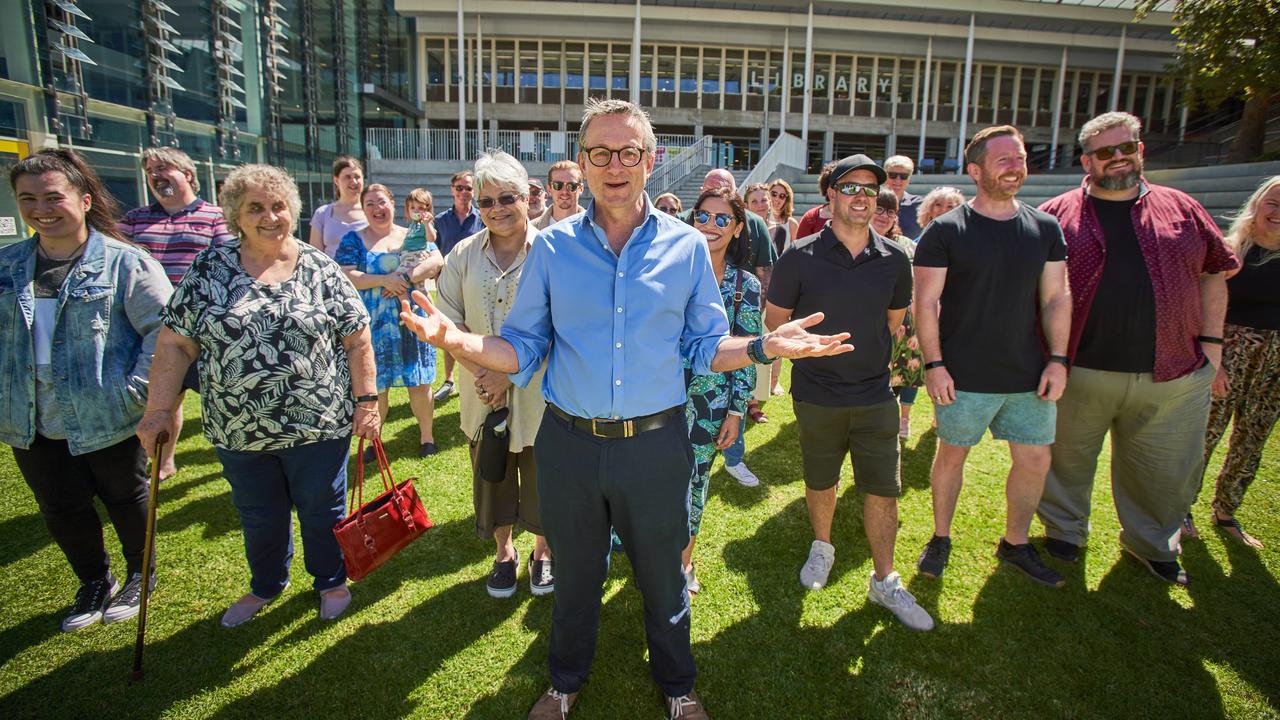Two in five Aussies are not getting enough rest: Australia facing a ‘sleep crisis’
Forget Ozempic for weight loss, or puzzles and brain trainer games for your memory – here’s one simple act you need to try.
Forget Ozempic for weight loss, or puzzles and brain trainer games for your memory – there’s one very simple act that can reduce your risk of obesity or dementia, and it’s as simple as switching off the lights and shutting your eyes.
A deep sleep is so important for our bodies that it can reduce the risk of dementia and stop us from overeating – but for many Australians falling asleep is a lot harder than it sounds.
Lying awake in bed as the hours tick on can feel very lonely – but it’s estimated 40 per cent of the population are getting inadequate sleep every night.

Australia is facing a “sleep crisis” according to British medical journalist, author and documentary maker Dr Michael Mosley, and it’s affecting everyone from the young to the elderly.
Our sleeping habits are “bad across the board”, and are being triggered by our increasingly online world, social media, stress and junk food.
Sure, the feeling of exhaustion when you wake up is awful, but there are long term impacts on the body and mind that are far more serious – potentially leading to dementia and heart disease.
“We know (a lack of sleep) impacts pretty well every system in your body,” Mosley says.
“It’s bad for your memory because a lot of memory storage goes on during deep sleep.
“It contributes to obesity, type two diabetes, heart disease, impotence, all of them are strongly linked to lack of sleep.”
Priyanka Vandersman once thought her insomnia was her “superpower”, enabling her to work and study for her PhD, but when she became a mum, she quickly realised it was in fact one of her biggest problems.

“I had a very sort of crazy busy lifestyle, either doing my nursing degree or working as a nurse doing night duty while undertaking a research degree,” she says.
“It was really good because between 10pm and 3am I’d be knocking out a portion of my research after work.
“But it started to be a real problem when I got to a full-time Monday to Friday working model and had my daughter. The challenges of motherhood were there but it gets really, really intensified when the background is lack of sleep constantly for days on end.”
Tossing and turning for three or more hours before falling asleep for just a few hours each night, Vandersman realised her lack of sleep was a real issue when she struggled to maintain calm with her toddler, and noticed herself feeling groggy at work by 11am.
“It was a struggle every day,” she says.
“I had this sense of being defeated even before I hit the bed, thinking, ‘here we go again’.”
A medically trained science writer and a long-term insomniac himself, Mosley has delved into the world of sleep to try and figure out why he, and people like Vandersman, can’t sleep – and how we can actually get it.

One of the first things he found was that a lot of “detective work” is needed to figure out why someone can’t fall asleep.
“There are numerous causes, and that’s why most of the sort of stuff you read about in magazines or the general advice you get from your GP is going to be ineffective because they’re not really dealing with the underlying issue,” he says.
“So scented candles, warm baths, pink noise, they are all very nice, but extremely unlikely to make a significant difference to most people.”
One of the key reasons for chronic insomnia or lack of sleep in Australia is actually sleep apnoea – a surprisingly common condition in which your breathing stops and restarts many times while you sleep.
“It is massively under-diagnosed in Australia,” Mosley says.
“Probably about one in 10 Australians have it, and maybe half of all males over the age of 50 probably have it, but less than five per cent are actually getting treated.”
And that “nine hours sleep per night” rule we’ve all heard about – well, Mosley says it’s actually a myth.
While it may come as a shock, some people need just five hours to function properly, others need more than the magic nine.
“There’s actually a huge variation and the best measure of whether you’re getting enough sleep is (asking), ‘Do you feel tired during the day? Do you feel knackered when you wake up? Do you fall asleep at work? Do you fall asleep at the wheel?’,” he says.

Along with 28 of the country’s worst sleepers, Mosley and Vandersman trialled a world-first Australian sleep treatment program for his new SBS documentary series Australia’s Sleep Revolution. Teaming up with expert scientists from Adelaide’s Flinders Sleep Institute – Professor Danny Eckert and Dr Sutapa Mukherjee – the restless sleepers took part in a cutting-edge trial that aims to crack even the most stubborn of sleep disorders, using a unique multidisciplinary approach and the very latest sleep monitoring technology.
“I feel so empowered,” Vandersman says following her experience in the trial.
“Even when I go off track, which I will, because reality is messy, I know how to get back to the rhythm of getting back to good sleep hygiene and I think that has been the most important win out of this for me.”





